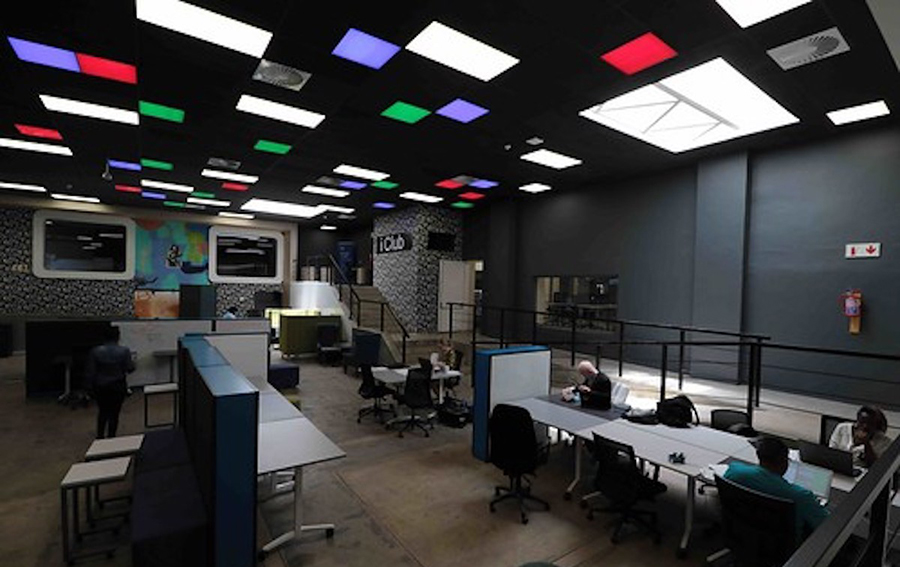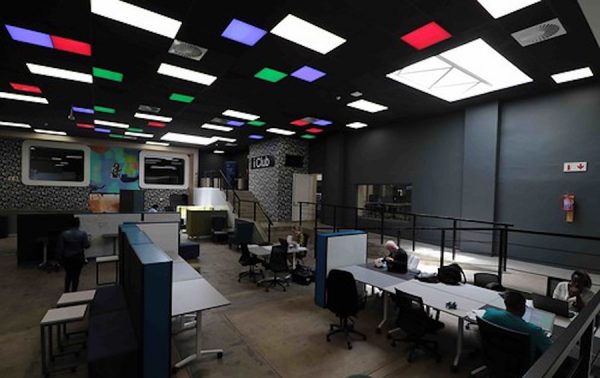Nigeria has emerged as a prominent player in the African tech ecosystem. The rapid growth of tech hubs in Nigeria is a testament to this evolution. These tech hubs across major cities in Nigeria have become crucial in driving technological advancements, innovation, entrepreneurship, and economic growth. This article takes a look at the historical development and impact of these tech hubs in Nigeria, highlighting key milestones from their inception to the present day.
Read more about Tech
The Early Beginnings
The story of tech hubs in Nigeria dates back to the early 2010s. A surge in internet penetration and mobile phone usage marks this period in Nigeria. The first major tech hub, Co-Creation Hub (CcHub), was established in 2010 in Lagos by Femi Longe and Bosun Tijani, currently the Minister of Communications, Innovation and Digital Economy. CcHub was more than just a workspace; it was a collaborative environment where tech enthusiasts, entrepreneurs, and investors converged to develop innovative solutions to societal challenges. Located in Yaba, Lagos, CcHub quickly became the heart of Nigeria’s emerging tech scene, earning the nickname “Yabacon Valley.” It supports many Nigerian youths interested in working on various solutions through mentorship, funding, and networking opportunities. CcHub’s success was what set the stage for other tech hubs to emerge, both in Lagos and across the other cities of Nigeria.
Expansion and Growth
Following the success of CcHub, several other tech hubs began to spring up across Nigeria. Notable among these were iDEA Hub and the Wennovation Hub. These early hubs laid the foundation for what would become a thriving tech community, attracting local and international attention. iDEA Hub, which is the first government-built startup hub in Nigeria, was launched in 2013 under the leadership of Dr. Omobola Johnson as Minister of Communications Technology. The goal was to provide a conducive environment for young tech entrepreneurs to develop their ideas and bring them to market. iDEA Hub offered access to world-class facilities, mentorship, and funding, playing a crucial role in nurturing the next generation of Nigerian tech entrepreneurs. Wennovation Hub, which began operations in 2011, focused on promoting innovation and entrepreneurship through collaboration and strategic partnerships. By 2013, Meltwater Entrepreneurial School of Technology (MEST), originally based in Ghana, expanded its operations to Nigeria, further strengthening the tech ecosystem with its robust training programs and incubation services. These hubs provided essential resources such as high-speed internet, mentorship programs, and funding opportunities, enabling start-ups to thrive in a supportive environment.
One key factor driving the proliferation of tech hubs was the growing recognition by both the government and private sector of the vital role technology could play in economic development. In 2013, the National Information Technology Development Agency (NITDA) launched initiatives to support tech start-ups, further fuelling the growth of tech hubs in Nigeria.
Regional Spread
While Lagos remained the epicentre of Nigeria’s tech scene, tech hubs began to emerge in other regions, spreading the benefits of technological innovation across the country. In Abuja, Ventures Platform Hub was established in 2016 and has since become a leading incubation centre for tech startups. Also in Abuja, Civic Innovation Lab was founded in 2017, providing a space for tech enthusiasts and entrepreneurs to collaborate on civic solutions. Similarly, in the northern region, hubs like nHub (2015) in Jos and StartPreneurs (2016) in Kano, the Kaduna ICT Hub (2017) in Kaduna, began to emerge, each tailored to the unique needs and challenges of their local communities, driving digital literacy and entrepreneurship in the northern part of Nigeria. These regional tech hubs played a critical role in decentralizing tech innovation, ensuring that talent from all parts of Nigeria could contribute to the country’s growing tech industry.
The Role of Universities
Universities have also played significant roles in the growth of tech hubs. Institutions like the University of Nigeria, the University of Lagos, and Obafemi Awolowo University have established innovation centres to foster tech entrepreneurship among students. These university-based hubs bridge the gap between academic research and practical application, ensuring that innovative ideas can be transformed into viable tech solutions. Roar Nigeria Hub, founded in 2016 and located at the University of Nigeria Nsukka, is the first full-fledged university-embedded tech-focused incubator in the whole of West Africa
Impact on the Startup Ecosystem
The growth of tech hubs in Nigeria has had a significant impact on the country’s tech ecosystem. These hubs have served as incubators for numerous successful startups that have gained international recognition, providing essential resources such as funding, mentorship, and networking opportunities. For instance, Andela, a company founded in 2014 that trains software developers, started its journey at CcHub. Today, Andela has expanded beyond Nigeria, impacting the global tech industry. Many other successful Nigerian tech startups, such as Paystack and Flutterwave also have roots in these tech hubs.
Sign up for the Connect Nigeria daily newsletter
Tech hubs in Nigeria have significantly fostered a culture of innovation, collaboration, and entrepreneurship. They provide a platform for networking, collaboration, and knowledge exchange, which are essential for the growth of any start-up ecosystem. Furthermore, by offering access to funding opportunities, tech hubs have enabled many start-ups to scale their operations and reach new markets. Moreover, these tech hubs have played a vital role in attracting foreign investment into Nigeria’s tech industry. The visibility and success of these hubs have caught the attention of international investors, who see Nigeria as a promising tech powerhouse.
Challenges and Opportunities
Despite their successes, tech hubs in Nigeria face several challenges. One major issue is the lack of adequate infrastructure, such as reliable electricity and internet connectivity. These challenges hinder the operations of tech hubs and the start-ups they support. Additionally, access to funding remains a persistent issue for many tech entrepreneurs.
However, these challenges also present opportunities for growth and improvement. For instance, there is a growing movement to develop sustainable and locally sourced energy solutions, especially solar-powered, to address power issues. Similarly, network providers in the country are competing to improve internet connectivity, ensuring that more people can participate in the digital economy. Recently, Elon Musk’s satellite internet company, Starlink, was launched in the country and has since been embraced by many tech hubs. Initiatives to improve infrastructure and increase investment in the tech sector are crucial. Furthermore, the Nigerian government has supported the tech sector, recognizing its potential to drive economic growth and development. Initiatives such as the passage of the Nigerian Startup Bill, the development of the National Digital Economy Policy and Strategy (2020-2030), and the establishment of the National Information Technology Development Agency (NITDA) are aimed at creating a conducive environment for tech innovation and entrepreneurship. The current Minister of Digital Communication in Nigeria
The Future of Tech Hubs in Nigeria
Looking ahead, the future of tech hubs in Nigeria appears promising. The continuous growth of the tech industry, coupled with increasing support from government and private sector stakeholders, suggests that tech hubs will continue to play a pivotal role in driving innovation and economic development. Also, there has been a healthy awareness of the need for tech among Nigeria’s young and dynamic population. The number of tech-savvy individuals in the country is growing daily and is a big positive for the future of tech hubs in Nigeria.
Furthermore, the rise of remote work and digital income sources accelerated by the COVID-19 pandemic has highlighted the importance of technology in modern economies. More businesses, industries, and individuals are embracing digital solutions, increasing the demand for tech talent and innovative solutions and further boosting the relevance of tech hubs in Nigeria.
New tech hubs are being established in various parts of the country, each bringing unique strengths and focusing on different aspects of technology and entrepreneurship. One emerging trend is the specialization of tech hubs. While early tech hubs were more general in their focus, new hubs specialize in specific sectors such as fintech, agritech, healthtech, and edtech. This specialization allows for more targeted support and resources, helping start-ups in these sectors to thrive.
Additionally, there is a growing emphasis on building more inclusive tech communities that ensure women have equal access to opportunities in the tech industry. There are today so many female-led and female-focused programs and initiatives such as She Leads Africa and TechHer empowering women in tech.
Register to attend the CN Business Mixer
Concluding Thoughts
The growth of tech hubs in Nigeria has been remarkable, transforming the country into a significant player in the global tech landscape. From the pioneering days of CcHub to the diverse and dynamic tech hubs, these spaces have played a crucial role in fostering innovation, entrepreneurship, and collaboration. Despite the challenges, the future looks promising, with new opportunities and support systems emerging to drive further growth. One thing is clear, tech hubs are more than just physical spaces. They are the lifeblood of Nigeria’s tech industry, empowering entrepreneurs, creating jobs, and driving technological advancements. With continued support and investment, the future of tech hubs in Nigeria holds immense potential for even greater achievements.
Got a suggestion? Contact us: [email protected]


